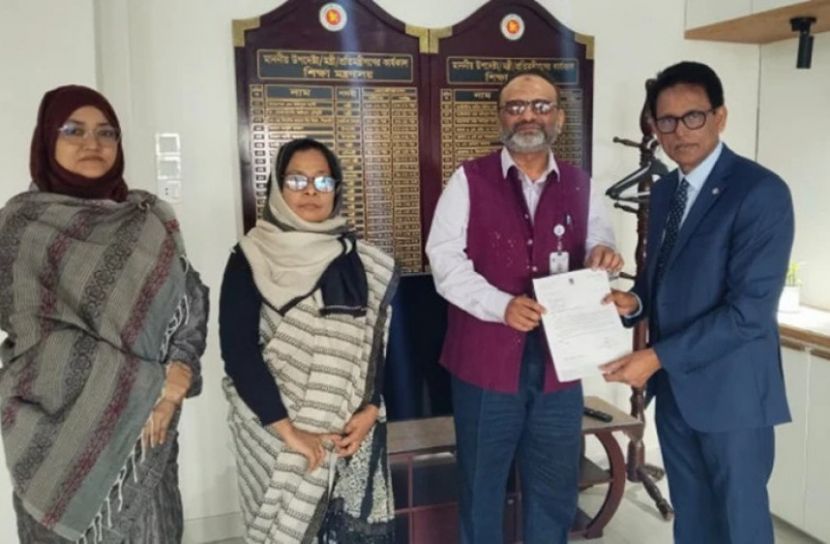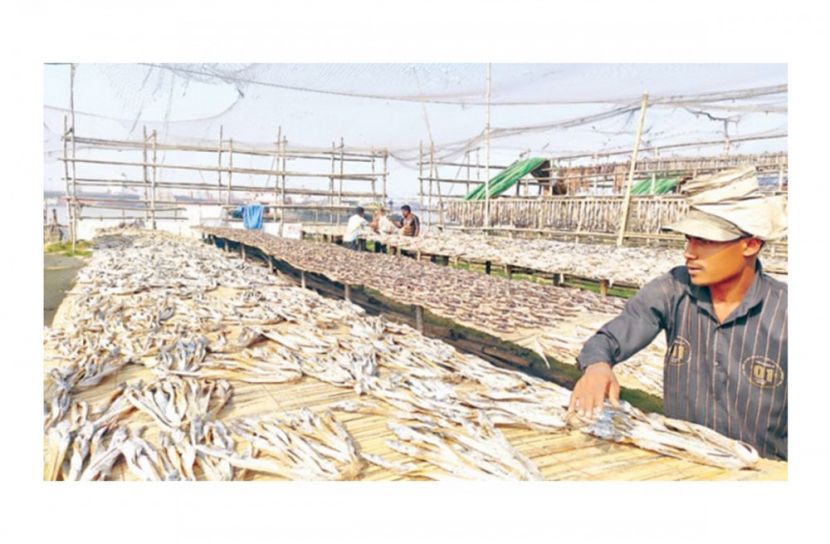
Inward remittance of the country shrinks by 23%

VC Niaz Ahmed Khan resigns

One dies while attending Janaza!

Bangladesh will not join ICC T20 World Cup in India

Nezam Uddin Abir: Every morning, a bustling scene unfolds along the banks of the Karnaphuli River in the Bastuhara area of Chattogram. Across the vast open fields, hundreds of workers engage in the seasonal ritual of drying fish—a sight that, from afar, looks like a golden carpet shimmering under the sun. This is where Chattogram’s famous dried fish, or shutki, is produced—supplying not only local markets but also destinations across Bangladesh and even abroad.
Before sunrise, workers gather by the riverbank. Some clean freshly caught fish, others mix them with salt and spread them out on bamboo mats to dry. Once dried, the fish are sorted and packed into baskets for sale. The air is thick with the scent of fish and salt—a smell that, for thousands, signifies livelihood.
Local trader Md. Rafiqul Islam, who has been in the dried fish business for over 15 years, explained,
“We mainly dry fish caught from the Karnaphuli River and the Bay of Bengal. The drying season runs from October to March, when the weather is sunny and dry—perfect for quick drying.” He added,
“We process various types of fish here—ribbonfish, Bombay duck (loitta), shrimp, catla, and more. Every season, hundreds of tons of dried fish are produced, most of which go to Cox’s Bazar, Sylhet, and Dhaka.”
According to Rafiqul, the trade has evolved beyond traditional markets. “Now we also take online orders. People are more health-conscious these days and want clean, hygienically prepared dried fish. That’s why we dry our fish on plastic sheets instead of directly on the ground—to keep them free from dust and dirt.”
The shutki industry is not just about business; it sustains hundreds of workers—men and women alike. Rokeya Begum, a female laborer working by the riverbank, said,
“We start work at six in the morning. We clean, wash, and salt the fish—all by hand. We earn about 400 to 500 taka a day. This job keeps my family going.”
Despite the importance of their work, it is not without hardship.
“The smell can make you dizzy sometimes,” Rokeya said. “The salt burns and cracks the skin on our hands. But without this job, we couldn’t survive.”
Another worker, Kamal Hossain, said, “We work seasonally. When the rains come, drying stops, and we have to find other work. But during the season, the income is good.” He noted that working conditions have improved in recent years: “We used to dry fish on muddy fields, but now there are concrete platforms—cleaner and more durable.”
Traders say that good weather and quality fish are the keys to success. Since the fish come fresh from the Karnaphuli River and the Bay of Bengal, the dried fish from this region has a unique taste. That’s why buyers from all over the country prefer Chattogram shutki.
Nurun Nabi, a local customer, said, “The dried fish from Bastuhara is excellent. Every year I buy loitta and chepa shutki from here. You can find dried fish in many places now, but the taste from this area is special.”
However, challenges remain. Traders pointed to changing weather patterns and river pollution as major concerns. Rafiqul said,
“Because of climate change, we don’t get consistent sunlight like before, so drying takes longer. Pollution in the river also affects fish quality. If the government provided modern drying machines, we could produce dried fish year-round and boost exports.”
The dried fish village of Chattogram is more than just a center of trade—it’s a lifeline for generations. Here, fishermen, laborers, and traders work side by side, turning their sweat and skill into one of Chattogram’s most traditional food products—one that carries the city’s name and flavor far beyond Bangladesh’s borders.
As the warm breeze drifts across the Karnaphuli and the scent of sun-dried fish fills the air, it carries with it the toil, dreams, and resilience of thousands. This field is not merely a place for drying fish—it is a living industry, an enduring part of Chattogram’s economy and culture.
Sun News/ra
Newsletter
Subscribe to our newsletter and stay updated.


